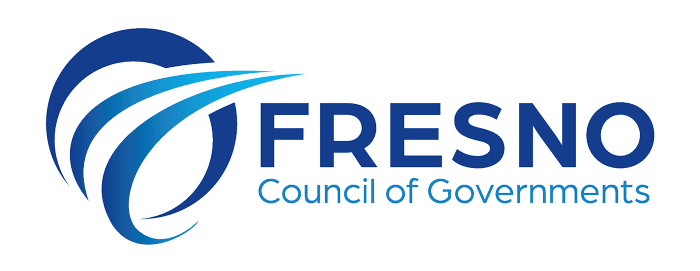Summary: The funding strategy for widening the remaining six miles of State Route (SR) 41 from Elkhorn to Excelsior avenues in Fresno County is at a critical juncture requiring immediate action from Fresno COG and the Fresno County Transportation Authority (FCTA) boards. Complicating the issue is the oversight involvement of multiple agencies, including the California Transportation Commission. As of this writing, the situation is evolving and subject to change.
Fresno COG is providing multiple recommendations for action to address the situation, all of which involve increasing funding shares to help cover Caltrans-projected or actual cost overruns.
Widening SR 41 from the outskirts of Fresno to Kings County was a priority in the original 1986 Measure C Expenditure Plan. Fresno COG, FCTA and Caltrans partnered to construct 16 miles of four-lane expressway to approximately Elkhorn Avenue.
The majority of project funding came from Measure C, with a small amount of State and Local Partnership Program (LPP) funding. Kings County also made improvements to SR 41 on its end to link the corridor; however, when the 16-mile segment was constructed, design and environmental on the final segment to close the six-mile gap between Fresno and Kings counties had not begun.
During discussions among the partners leading up to the 2006 Measure C ballot, a strategy evolved to program the remaining gap (the Excelsior Expressway) in the State’s Interregional Improvement Program (IIP), and funding also appeared in the State Transportation Improvement Program (STIP) for a few years; however, due to state budget issues in 2008, the project fell out of the STIP.
In order to restore the IIP funding, Fresno COG agreed to match $8 million of IIP with $2 million in Regional Improvement Program (RIP) from the STIP to develop the project.
In 2020, discussions among the partners intensified, and in 2022 Fresno COG and the FCTA amended the Rural Tier I list and programmed Measure C and State Regional Improvement Program (RIP) funds to match State IIP and State Highway Operations and Protection (SHOPP) funds.
The project’s total cost was expected to be $70.8 million, with SHOPP contributing $14.8 million, the IIP $31 million, the RIP $12 million and $13 million in Measure C funding. Construction was programmed in 2024-25. In 2025, FCTA added $4.1 million in formula LPP to offset part of the Measure contribution.
The design and right-of-way are now essentially complete; however, construction cost overruns delayed the anticipated 2024-25 list date.
The California Transportation Commission (CTC) approved a time extension on the funding but the project must be allocated in October. For the project to proceed to construction, the Cooperative Agreement between Caltrans and FCTA must be modified in August to perfect the Measure funding.
The construction cost increase is $24,408,000. Of that, $13,780,000 comes out of the SHOPP and IIP, while the RIP must increase $4,191,000 and the Measure $6,437,000. Caltrans District 6 is working with its Local Programs Division in Sacramento to approve the SHOPP and IIP; however, RIP funding must be resolved prior to approval, which includes the CTC ratifying the decisions being made.
Fresno COG administers the Regional County Shares (75 percent) of the State Transportation Improvement Program. Fresno COG programmed the balance of RIP county shares in the 2024 STIP on American Avenue, so there is no RIP funding available today.
The fund estimates for the 2026 STIP released in June set Fresno COG’s initial target at $14,611,000, providing enough to cover the $4.1 million; however, the funding is not available for programming until 2028-29 or beyond.
The current STIP is oversubscribed, so the CTC has discontinued allowing advances of county shares; however, CTC policy allows agencies to advance RIP with local funds via a loan (AB 3090) agreement. Under this scenario, the CTC programs the additional funding in 2028-29 or beyond, but the project goes to construction using additional local funds and the RIP allocation is reimbursed in the programmed year.
Approved AB 3090 agreements have priority for available STIP funds programmed in the year of eligibility, but it is not an ironclad guarantee of reimbursement. If something happens to the State budget that negates the entire STIP, the obligation would not be fulfilled.
In addition, the CTC locked down STIP projects when the 2026 STIP fund estimate came out in June and the AB 3090 cannot be adopted by the CTC until the 2026 STIP is adopted in March 2026. This means there is no guarantee the loan agreement will be approved.
Staff proposes the Fresno COG board commit to programming $4,191,000 of the 2026 RIP target for SR 41 Excelsior Expressway and support FCTA and Caltrans to request an AB3090 agreement to advance the RIP funds with Measure C.
In February the Authority approved a cooperative agreement with Caltrans for $8,836,000. The revised commitment, including the Measure share of the cost overrun and the potential AB 3090 loan brings the total Measure contribution to $19,464,000. This means the revised agreement would increase the Measure contribution by $10,628 ,000. However, $4,164,000 of this was previously programmed in the existing Expenditure Plan, so this represents a net increase in Measure funding of $6,464,000.
Staff has identified $6,464 ,000 in available funding from the original 1986 Measure that has recently been freed up by closing out old contractual obligations and through repayments of Regional Transportation Mitigation fee loans.
Action: Staff recommends the Policy Board approve the following four recommendations:
Recommendation 1: Authorize an additional $6,464,000 in original, rural Measure C to be programmed against SR 41 Excelsior Expressway in the Measure C Regional Transportation Plan Rural Tier 1.
Recommendation 2:
Identify SR 41 Excelsior Expressway as a candidate for 2026 RIP funding and authorize $4,191,000 be programmed in 2028/29 or beyond.
Recommendation 3:
Recommend FCTA amend the SR 41 Excelsior Expressway cooperative agreement with Caltrans to be increased $10,628,000 to $19,464,000.
Recommendation 4:
Recommend FCTA, Caltrans and Fresno COG cooperate to request an AB 3090 reimbursement agreement with the CTC for the SR 41 Excelsior Expressway $4,191,000 future county shares.



